Animals
-
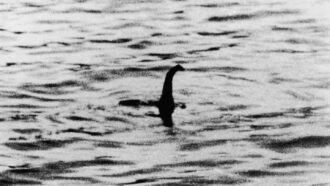 Animals
AnimalsHave you seen Bigfoot or the Loch Ness Monster? Probably not
Floe Foxon is a data scientist by day. In his free time, he applies his skills to astronomy, cryptology and sightings of mythical creatures.
By Meghan Rosen -
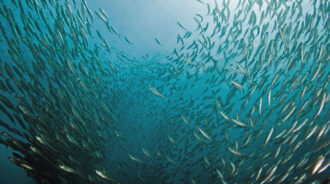 Animals
AnimalsSwimming in schools lets fish save lots of energy
Each tail flap uses less than half as much energy than swimming solo, making it easier for fish to catch their breath after an underwater sprint.
-
 Animals
AnimalsPaw-print DNA lets scientists track out-of-sight polar bears
This environmental DNA can aid in conserving species that are hard or dangerous to observe.
-
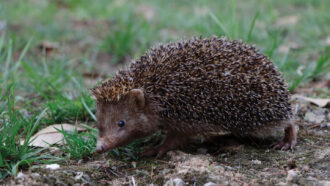 Animals
AnimalsA newfound type of hedgehog is small, dark and adorable
At first, this hedgehog was mistaken for a lookalike relative. But its teeth, skull shape and DNA confirmed it as a new species.
-
 Animals
AnimalsHere’s how kingfishers avoid concussions during high-speed dives
Understanding the genetic adaptations that protect the birds’ brains as they dive might one day offer clues to protecting human brains.
-
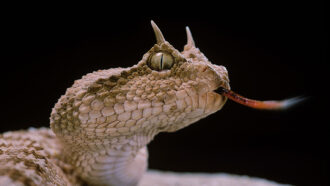 Animals
AnimalsHorned lizards and snakes tend to ambush their prey
The reptiles’ horns could help or hinder during foraging, depending on how they hunt. This might be why horns evolved in some species and not others.
By Jake Buehler -
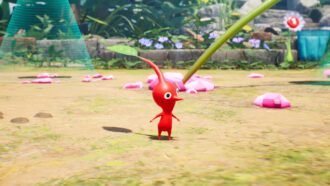 Animals
AnimalsPikmin’s plant-animal mashups don’t exist — but sun-powered animals do
Corals team up with photosynthetic zooxanthellae. Some sea slugs steal chloroplasts. How might animals and plants team up in Nintendo’s Pikmin games?
-
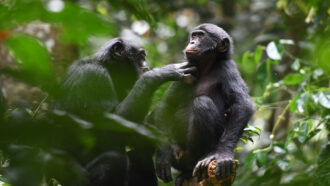 Animals
AnimalsBonobos cooperate across social groups — even with no clear payoff
Bonobos cooperate with outsiders, even when they get no clear benefit out of it. This could shed light on social evolution in other primates, even us.
By Jake Buehler -
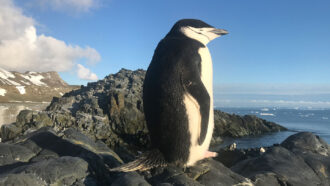 Animals
AnimalsThese penguins nap 10,000 times a day, for seconds at a time
Such an extreme sleep schedule may help nesting chinstrap penguins protect their young while still getting more than 11 hours of shut-eye.
By Jake Buehler -
 Psychology
PsychologyPets and other animals can boost health and well-being
Living with animals seems to provide some health benefits, from lower stress levels to a stronger immune system.
-
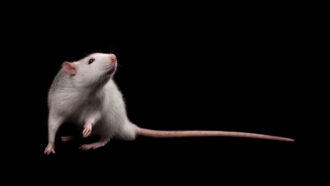 Animals
AnimalsLike tiny Jedis, rats can move digital objects with their brains
Rats imagined their way through a 3-D virtual world in a new study. The results hint at how brains think about places they aren’t physically in.
-
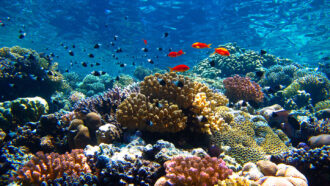 Oceans
OceansShading corals during midday heat can limit bleaching
Shading coral reefs during the sunniest part of the day may help corals survive marine heat waves.